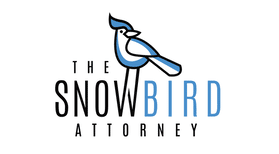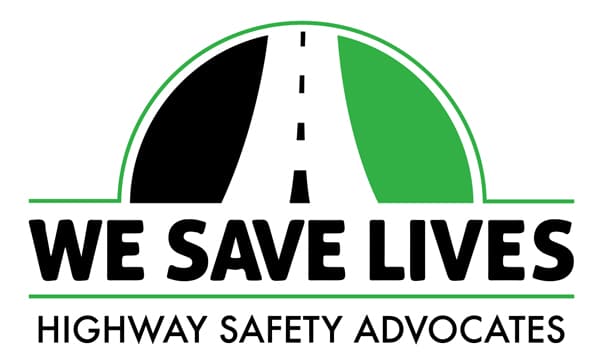Why You Shouldn’t Say These Phrases to Someone Who’s Grieving
When I was hit head-on by a drunk driver in May 2021, the immediate recovery was undeniably the most difficult time of my life. The day before my crash, I was a healthy 22-year-old attending an Orange Theory class. I had never broken a bone in my life. Little did I know, my life would drastically change in just a matter of hours due to someone else’s decision to drive after a night of drinking.
Undergoing seven surgeries with the insertion of four plates and 22 screws, both my future and recovery was cast into uncertainty due to a drunk driver. Looking back upon that time, I now realize I would not have made it through without the support network of extraordinary family, friends, colleagues, and community. They were instrumental in helping persevere through my arduous recovery.
There is No Yellow Brick Road to Healing
A day before my crash, I reached a new personal best on my mile time, and suddenly my new reality required round the clock care. I found myself reliant on assistance for basic activities such as dressing, feeding, and clothing myself – an outcome stemming from a completely avoidable crash. I understand that my loved ones must have faced a daunting task in choosing their words during this tumultuous period because what exactly do you say? However, some things are best left unsaid.
The phrase “everything happens for a reason” was all too familiar and unsettling. There was no rational explanation for the crash occurrence, or justification for my severe physical and mental injuries due to a drunk driver. For me, my path to healing meant talking about my crash and sharing my story. I found peace knowing maybe I would change the trajectory of someone’s life and prevent this crime from injuring or killing someone else. However, it’s crucial to understand that there is no “yellow brick road” to healing. Not all victims find solace in reliving moments of crashes that robbed them of loved ones or left them severely injured.
“You’re so lucky. You could have died.” I acknowledge the grim truth that many are unable to share their stories due to untimely loss – lives cut short by the recklessness of others. However, despite seven surgeries and more looming, I cannot honestly claim to feel fortunate. Other things people said, “You’re so strong. If anyone can get through this, it’s you”. “I don’t know how you do it. You’ve always been the strongest person out there”, while likely well-intentioned, it stung. Feeling strong was far from reality, both mentally and physically. It seemed to trivialize the situation – implying that my toughness made the experience less challenging. Strength doesn’t always lighten the load.
Survivors Recovering Are Craving Companionship
I recently came across a graphic on facebook that read, “Check on your strong friends”. That struck me. Sometimes, simply asking someone how they’re holding up is the most profound gesture for those in mourning. Maybe it’s time to reconsider the notion that grieving individuals seek a magical remedy for their troubles. Instead, they crave companionship – a sense of not being alone on their journey.
Empathy doesn’t require perfect words. It’s about being there, being vulnerable, and being willing to listen to someone’s experience. Here are some better ways to show your support and empathy for a friend or loved one who may be grieving or going through a dark time.
– Share a cherished memory: Relating a positive recollection involving a departed loved one can aid the grieving process by commemorating their legacy.
– Assure them that their emotions are valid: Grief is a complex journey, often encompassing shock, sadness, pain, anger, guilt, anxiety, and numbness. It is not linear either.
– Let them know you’re thinking of them: This simple gesture conveys your support. If they’re unsure of their needs, suggest assistance with simple errands or cooking.
– Sometimes, silence is golden: Recognize verbal and nonverbal cues; at times, lending a patient ear is the most valuable contribution you can make.
The power of empathy can be transformative to someone going through adversity. As we extend our hearts and commit to being present for someone in need, we become beacons of light in the incredible dark times of grief. It’s not the words we say, but the genuine care we offer that could make a difference in another person’s journey to healing and peace.
I Am Thankful For the Crash Victim Community
Speaking from personal experience, I’m delighted to say that, like many other victims and survivors of drunk driving, I’ve transformed my pain into purpose after my crash. I’ve learned to navigate life with my polytraumatic injuries, adapting to my new normal – or as I like to call it, “Tess 2.0.” While grief for my old self still lingers, I’m content to say it’s reached a point where I can manage it.
It’s important to acknowledge that recovery may be ongoing. While, I believe I have made it through the worst of my post-crash recovery, with more surgeries on the horizon and a whole lot more life to live, I know there may be dark days ahead. That’s why I am so thankful to have the traffic crash victim community. While this may not be my family by “choice” as we are all bound by someone else’s choice to drive under the influence, I would not trade them for the world. For those seeking support and a safe place: please don’t hesitate to reach out to the Crash Support Network. You’re not alone on this journey.
Tess Rowland is a passionate roadway safety advocate and an Emmy-nominated journalist. Tess currently serves as the Traffic Safety Liaison for the Harris County Sheriff’s Office in Texas where she works to educate the community about traffic safety and coordinates with law enforcement to enhance traffic safety initiatives. Most recently, Tess served as the National President of Mothers Against Drunk Driving. She has been featured on platforms like News Nation, Good Morning America, and Teen Vogue.
We thank Tess for her continuous support and for all of her hard work creating important road safety initiatives.
This article is also featured in our 2024 Summer Issue of Sharing our Recovery.
The Crash Support Network is a unique one-of-a-kind website consisting of an online support group, a crash survivor blog, a quarterly newsletter, “Sharing Our Recovery” as well as highly informative articles. Our website is based on relationship-building and puts the needs of survivors first by creating a helpful resource for victims and survivors of motor vehicle crashes.






